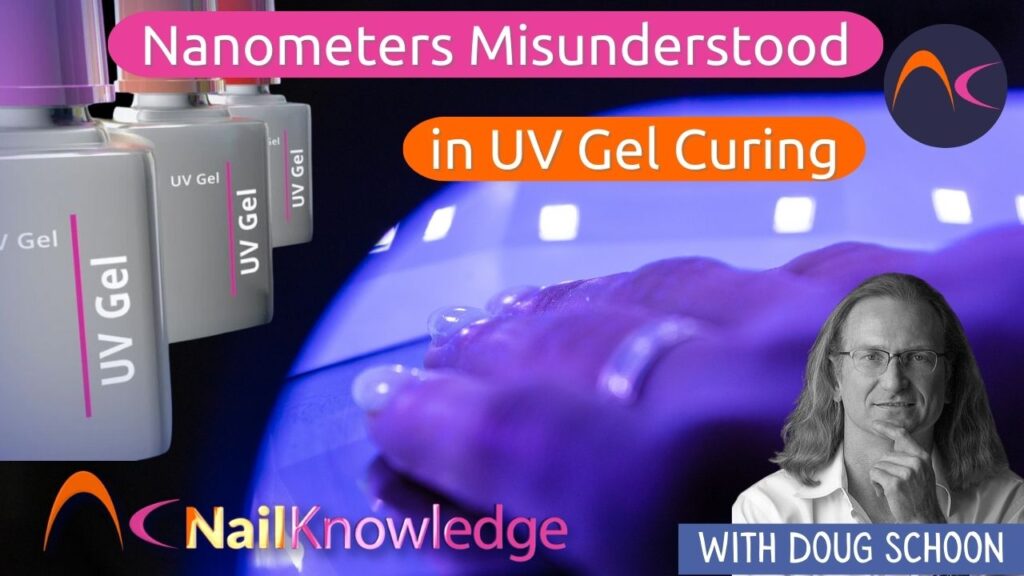Some people are using the term “nanometers” incorrectly when talking about UV gel manicures or enhancements.
Nanometers are not what cure UV curing products; they are simply a unit of measurement, equivalent to one billionth of a meter, used to describe the wavelengths of light. It is these specific wavelengths that are crucial in curing the product.
Exploring the Spectrum: The Range of Wavelengths Emitted by UV Nail Lamps
Nail lamps don’t just emit a single wavelength. They actually give off a range of wavelengths. For example, a 405 nm lamp emits wavelengths ranging from 420 to 390 nanometers (nm), with 405 nm being the center of this range. Similarly, 365 nm lamps emit wavelengths ranging from 380 to 350 nm, with 365 nm being the center.
Beyond Wavelengths: The Crucial Role of Intensity in Proper UV Curing
It’s important to note that wavelength range isn’t the only factor in curing nail products. The intensity of the light is just as important, in fact it is crucial to proper curing. Cheaper lamps often have a low intensity, which means they don’t cure the product properly. Both the intensity and the wavelength range need to be correct for proper curing to occur.
Think about how the sun tans your skin differently in the winter compared to the summer. The UV light from the sun is the same, but the intensity is lower during the winter months. So, intensity matters a lot.
Understanding the Real Measures of Nail Lamp Effectiveness
Some companies that sell cheap lamps might try to trick you by focusing on wattage instead of intensity. But wattage only tells you how much electricity the lamp uses, not the intensity of the UV light. UV intensity is measured in units called mW/cm2, not watts.


